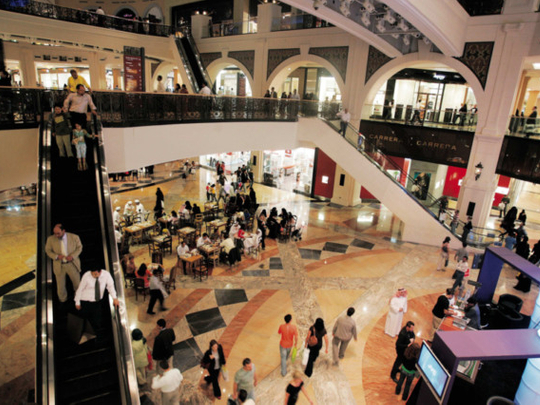
Consumers in the Middle East and Africa are among the most impulsive and brand-conscious shoppers in the world, new findings from a global survey revealed.
The latest Nielsen Global Survey of Consumer Shopping Behaviour, which polled more than 29,000 online respondents in 58 countries including UAE and Saudi Arabia, showed that approximately four out of ten people in the region (39 per cent) have a habit of impulsively buying things they don’t need.
The affinity for buying famous brands is also highest among consumers in the region (56 per cent). Nearly half (43 per cent) tend to get their hands on new products ahead of other consumers.
Residents in Asia Pacific, which includes growth markets such as China, India and Indonesia, are at the top of the impulsive spending list, with 40 per cent of consumers making unplanned purchases, and 45 per cent trying products earlier than others.
“With about one-third of global respondents often buying things they did not need and trying products earlier than others, impulsive spenders and early adopters were in the minority in all regions. But respondents [in Middle East and Africa, as well as Asia Pacific] exceeded the global average for both impulsive spending and early adoption,” Nielsen said.
“While consumers with Internet access typically skew to a more affluent and younger demographic, these respondents nevertheless represent the rising income and upward mobility of these developing-market consumers,” the report added.
Other analysts said the growing disposable wealth of consumers and improved economic conditions are the key factors behind the high prevalence of impulse buying. The huge concentration of shopping malls in the region, particularly in popular destinations such as the UAE, is another major contributing factor.
Daphne Kasriel-Alexander, consumers editor at Euromonitor International, said residents with means in the region, both local and expatriates, enjoy and perceive shopping as a broader leisure activity. She said people in this part of the world often spend time shopping with friends and family.
“Shopping is experienced as entertainment. The shopping experience, after all, takes in browsing of the best of local and global goods and typically in the cool ambience of climate-controlled malls as well as the pleasure of dropping into a café or restaurant,” Alexander told Gulf News.
“Malls in the UAE increasingly offer other activities such as cinemas, ice rinks, bowling and children’s play areas too, making them a complete leisure destination. Local malls have also become social meeting hubs, particularly for young people who perceive them as a place to be and be seen in as well as shop in,” she added.
Alexander, however, stressed that impulse spending is a reflection of the successful attempt by the retailers, as well as the beauty, apparel and luxury brands, to woo the consumer with more enticing products, tempting offers and “curated” selections.
“Because consumers express themselves through consumption, buying into this style makes them feel that the sophistication inherent in the product or setting rubs off onto them when they make their purchase. Brands are increasingly reaching out to consumers online and via smartphone alerts too, to inform them about new products and time-bound discounts to persuade them to spend,” she added.
In addition to disposable income and a prevalent shopping culture, the region is also characterized by its “aspirational nature”, according to Abhik Gupta, Nielsen’s executive director for consumer packaged goods in the Middle East, North Africa and Pakistan.
“People are willing to pay more for brand names. This becomes a form of self-expression in an aspiring environment,” Gupta told Gulf News.












